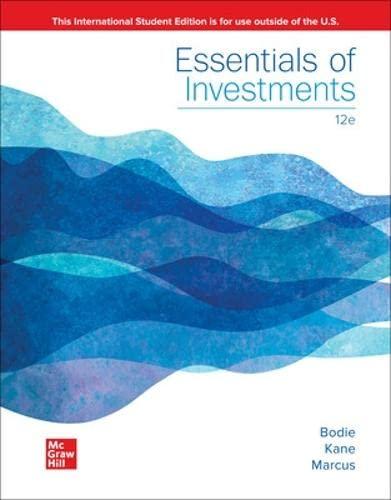
 Can you please help me solv mini case chapter 8 , cost accounting 17e edition.
Can you please help me solv mini case chapter 8 , cost accounting 17e edition.
MINI-CASE e departments presented as Binghamton Beverages Inc. Variance analysis: journal entries; other analyses for multiple de Cost and production data for Binghamton Beverages Inc. are pre LO3 follows: LOG Standard Cost Summary Blending Mixing Total LO7 $ 2 Materials: 4 lb @ $.50... 1 gal @ $1.00 Labor: 1 hr @ $8.00...... 1 hr $10.00.... Factory overhead: Per unit... $11 Critical Thinking Problem Production Report Mixing Blending None Beginning units in process. ...... Units finished and transferred ............. Ending units in process........... Stage of completion............. None 6,000 2,000 1/2 5,000 1,000 112 Cost Data Mixing Blending $15,600 $ 5,225 54,400 Direct materials: 30,000 lb @ $.52......... 5,500 gal @ $.95......... Direct labor: 6,800 hr @ $8.00..... 5,600 hr @ $10.20........ Factory overhead: Indirect materials ... Indirect labor .. Other 57,120 $ 500 2,000 4,500 $1,000 5,000 5,000 7,000 $77,000 11,000 $73,345 Chapter 8- Standard Cost Materials, Labor.am aterials, Labor, and Factory Overhead Required: a. Calculate net variances for materials, labor, and factory overhea b. Calculate specific materials and labor variances by depo using the diagram format in Figure 8-4. C. Comment on the possible causes for each of the variances that abor variances by department, computed. 2. Make all journal entries to record production costs in Work in Proces and Finished Goods. 3. Determine the balanc e the balance of ending Work in Process in each department. 4. Assume that 4,000 units were sold at $40 each. a. Calculate the gross margin based on standard cost. b. Calculate the gross margin based on actual cost. c. Why does the gross margin at actual cost di gin at standard cost. 5. As the plant controller, you present the variance report in Item 1 above to Paul Crooke, the plant manager. After reading it, Paul states: "If we present this performance report to corporate with that large unfavorable labor variance in Blending, nobody in the plant will receive a bonus. Those standard hours of 5,500 are way too tight for this production pro- cess. Fifty-eight hundred hours would be more reasonable, and that would result in a favorable labor efficiency variance that would more than offset the unfavorable labor rate variance. Please redo the variance calculations using 5,800 hours as the standard." You object, but Paul ends the conversation with, "That is an order." a. What standards of ethical professional practice would be violated if you adhered to Paul's order? b. How would you attempt to resolve this ethical conflict? MINI-CASE e departments presented as Binghamton Beverages Inc. Variance analysis: journal entries; other analyses for multiple de Cost and production data for Binghamton Beverages Inc. are pre LO3 follows: LOG Standard Cost Summary Blending Mixing Total LO7 $ 2 Materials: 4 lb @ $.50... 1 gal @ $1.00 Labor: 1 hr @ $8.00...... 1 hr $10.00.... Factory overhead: Per unit... $11 Critical Thinking Problem Production Report Mixing Blending None Beginning units in process. ...... Units finished and transferred ............. Ending units in process........... Stage of completion............. None 6,000 2,000 1/2 5,000 1,000 112 Cost Data Mixing Blending $15,600 $ 5,225 54,400 Direct materials: 30,000 lb @ $.52......... 5,500 gal @ $.95......... Direct labor: 6,800 hr @ $8.00..... 5,600 hr @ $10.20........ Factory overhead: Indirect materials ... Indirect labor .. Other 57,120 $ 500 2,000 4,500 $1,000 5,000 5,000 7,000 $77,000 11,000 $73,345 Chapter 8- Standard Cost Materials, Labor.am aterials, Labor, and Factory Overhead Required: a. Calculate net variances for materials, labor, and factory overhea b. Calculate specific materials and labor variances by depo using the diagram format in Figure 8-4. C. Comment on the possible causes for each of the variances that abor variances by department, computed. 2. Make all journal entries to record production costs in Work in Proces and Finished Goods. 3. Determine the balanc e the balance of ending Work in Process in each department. 4. Assume that 4,000 units were sold at $40 each. a. Calculate the gross margin based on standard cost. b. Calculate the gross margin based on actual cost. c. Why does the gross margin at actual cost di gin at standard cost. 5. As the plant controller, you present the variance report in Item 1 above to Paul Crooke, the plant manager. After reading it, Paul states: "If we present this performance report to corporate with that large unfavorable labor variance in Blending, nobody in the plant will receive a bonus. Those standard hours of 5,500 are way too tight for this production pro- cess. Fifty-eight hundred hours would be more reasonable, and that would result in a favorable labor efficiency variance that would more than offset the unfavorable labor rate variance. Please redo the variance calculations using 5,800 hours as the standard." You object, but Paul ends the conversation with, "That is an order." a. What standards of ethical professional practice would be violated if you adhered to Paul's order? b. How would you attempt to resolve this ethical conflict

 Can you please help me solv mini case chapter 8 , cost accounting 17e edition.
Can you please help me solv mini case chapter 8 , cost accounting 17e edition.





